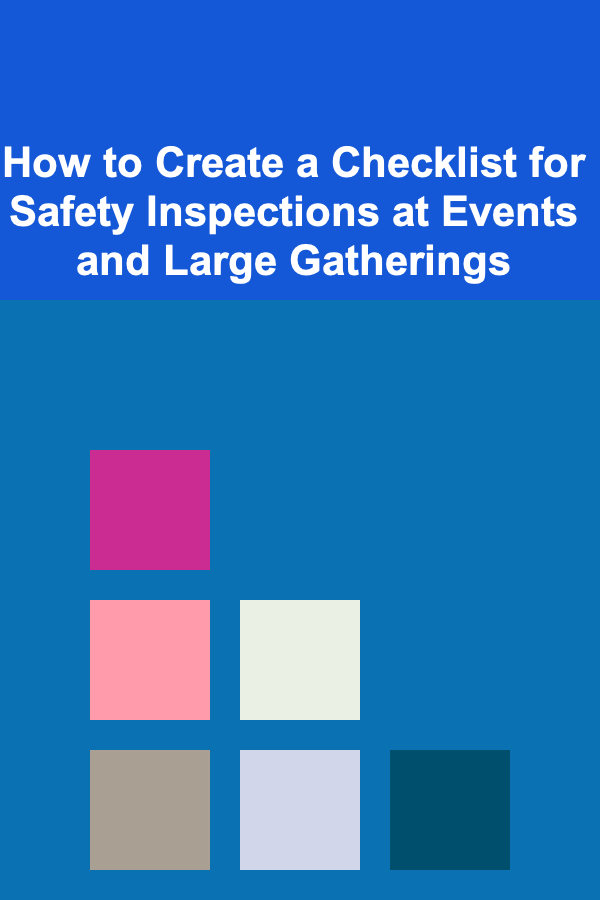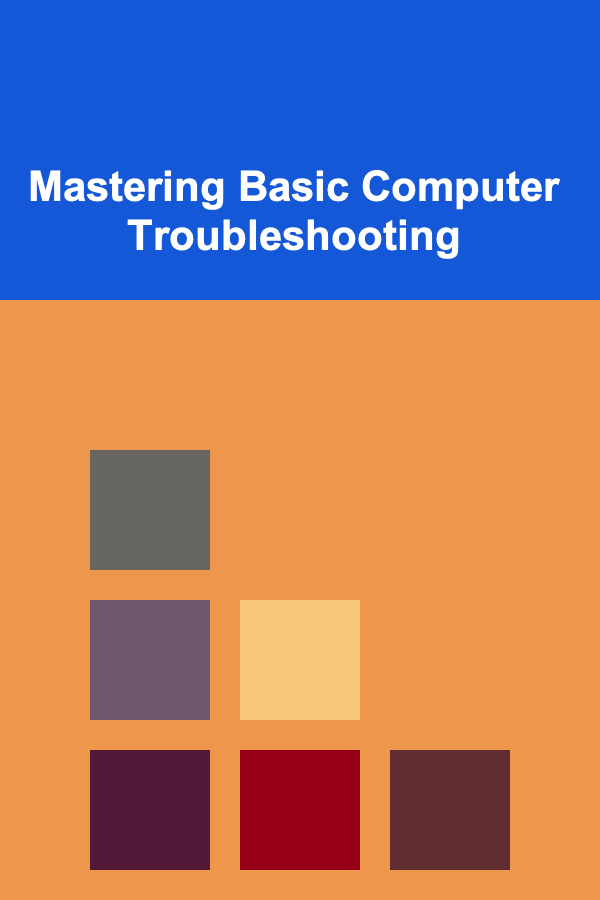
How to Choose the Right DJ Controller for You
ebook include PDF & Audio bundle (Micro Guide)
$12.99$6.99
Limited Time Offer! Order within the next:
Not available at this time

In today's digital age, DJing has evolved significantly, and the equipment used has become more advanced and accessible than ever before. One of the most crucial pieces of equipment for any DJ, whether amateur or professional, is the DJ controller. A DJ controller allows you to mix tracks, manipulate sound, and create live performances without relying on traditional hardware like turntables and mixers. But with the vast array of options available, how do you choose the right DJ controller for you?
This article will explore everything you need to know about selecting the best DJ controller for your needs, from understanding the key features to considering your budget, style of DJing, and personal preferences.
The Basics of a DJ Controller
A DJ controller is essentially an interface that connects to your computer or DJ software. It allows you to control various aspects of your music, including track playback, beatmatching, EQ settings, and effects. Unlike traditional setups, which rely on separate pieces of hardware (turntables, mixers, etc.), a DJ controller consolidates all of these controls into a single unit. Most controllers are equipped with:
- Jog wheels: Used for track scratching, cueing, and pitch bending.
- Faders: Used for volume control, crossfading, and EQ adjustments.
- Pads: Often used for triggering samples, loops, and hot cues.
- Knobs: For controlling parameters like filters, effects, and gain.
- Screen/Display: Some controllers include built-in screens to give you visual feedback on your tracks, BPM, and waveform.
However, not all DJ controllers are made the same. They vary in size, functionality, and compatibility with different DJ software. The key to choosing the right one lies in understanding your needs, skill level, and DJing style.
Factors to Consider When Choosing a DJ Controller
1. DJing Experience Level
Your experience as a DJ plays a significant role in determining the type of controller you should choose. DJ controllers vary greatly in complexity, with some designed for beginners and others for more advanced DJs.
Beginners:
If you're new to DJing, it's best to choose a controller that offers simple controls, an intuitive layout, and sufficient learning resources. Look for a controller that comes with a beginner-friendly DJ software, such as Serato Lite or rekordbox DJ, which offers fewer features than their pro versions but is easier to learn and use.
Some features to consider for beginners:
- Two-channel layout: A two-deck setup will suffice when starting out.
- Built-in sound card: This will save you the hassle of purchasing an external audio interface.
- Affordable price: Look for entry-level controllers that don't break the bank.
- Easy setup: Choose a controller with plug-and-play capabilities, making it easy to get started.
Intermediate to Advanced DJs:
Experienced DJs might want a controller that provides more advanced features and customization options. These controllers are typically more robust, offering features like multiple channels, performance pads, advanced effects, and the ability to connect additional gear.
Some features to consider for advanced DJs:
- Four-channel layout: This allows you to mix up to four tracks simultaneously for more complex performances.
- High-quality jog wheels: If you're serious about scratching, look for controllers with large, responsive jog wheels.
- Advanced effects: Many advanced controllers allow you to apply a range of effects in real-time, which is essential for live performances.
- Customization options: Look for controllers that allow you to adjust the layout, buttons, and features to fit your style.
2. Software Compatibility
One of the first things you need to consider when choosing a DJ controller is the software you'll be using. DJ controllers typically come bundled with a specific software or are compatible with popular DJ programs such as Serato DJ, Traktor Pro, or rekordbox DJ.
- Serato DJ: One of the most popular DJ software options, particularly among hip-hop and electronic DJs. Serato DJ offers an intuitive layout and a wide range of features, including beatmatching, looping, and effects.
- rekordbox DJ: Developed by Pioneer, rekordbox DJ is often favored by club DJs who perform with Pioneer equipment. It offers advanced track management features, and many controllers designed for rekordbox are designed to work seamlessly with Pioneer CDJs.
- Traktor Pro: Known for its powerful software and unique features, Traktor is popular among DJs who like to experiment with effects, loops, and live remixing.
- Virtual DJ: This is another software used by DJs, particularly for beginners. It has a user-friendly interface and a large database of pre-set effects.
Before purchasing a controller, ensure that it's compatible with your chosen software. Most DJ controllers are either pre-mapped to work with specific software or allow you to easily map them to your preferred platform. If you already own a DJ software or have a strong preference, ensure that the controller you choose works seamlessly with it.
3. Size and Portability
Depending on your DJing style and where you plan to perform, the size and portability of your controller are important factors to consider.
- Compact Controllers: If you're a mobile DJ who performs at different locations or a beginner with limited space, you may want a smaller, more compact controller that's easy to transport. These controllers are usually more lightweight and portable, making them perfect for small gigs or practice sessions at home.
- Full-Size Controllers: For DJs who perform in clubs or venues, a full-sized controller with multiple channels and more advanced features might be a better fit. These controllers offer a more professional feel and can provide better control over your mixes, but they can be heavier and more difficult to transport.
Consider whether you'll be performing at home or at venues and how often you'll need to transport your gear. Many controllers offer a balance between portability and functionality, giving you enough features without taking up too much space.
4. Connectivity and I/O Options
When choosing a DJ controller, you need to consider the types of input and output connections it supports. Most controllers feature a USB connection to your computer, but you should also think about additional outputs for connecting to speakers, microphones, or external devices.
- Audio Output: Ensure that the controller has built-in sound card capabilities (also known as an audio interface), which allows you to connect your headphones and speakers directly to the controller. This eliminates the need for an external audio interface.
- Headphone Output: DJs need to cue up tracks before playing them for the crowd. A controller with a dedicated headphone output and cueing features will be necessary for this purpose.
- External Inputs: If you want to connect external devices like a microphone or turntable, check whether the controller offers RCA or XLR input options.
- MIDI Out: Some advanced controllers allow you to send MIDI signals to other devices, such as lighting systems or drum machines.
Make sure that your DJ controller has the right connections to meet your performance needs.
5. Build Quality and Durability
The build quality of a DJ controller is crucial, especially if you plan to perform regularly or transport the unit to different locations. The last thing you want is a controller that breaks down after a few months of use.
- Metal Construction: Look for controllers made with sturdy metal components, as they tend to last longer and handle the wear and tear of live performances.
- High-Quality Jog Wheels and Faders: If you're into scratching or intense performance, it's essential to choose a controller with durable, responsive jog wheels and faders.
- Pads and Buttons: The pads on your controller should be responsive but not too sensitive. Make sure that they are built to withstand frequent use, as DJs often use them to trigger loops, samples, and effects.
A durable controller will ensure a smoother and more enjoyable experience, especially for DJs who perform regularly.
6. Price Range
Your budget will undoubtedly play a significant role in your decision-making process. DJ controllers come in a wide range of prices, from affordable entry-level options to high-end professional models.
- Entry-Level Controllers: These typically cost between $100 and $300. They're perfect for beginners who are just getting started and don't need advanced features.
- Mid-Range Controllers: In the $300 to $700 range, these controllers offer more advanced features, better build quality, and enhanced software compatibility. They're ideal for intermediate DJs who want to step up their game.
- Professional Controllers: High-end controllers cost upwards of $700 and can go as high as $2000. These models are built for full-time professionals who need advanced features, robust performance, and ultimate reliability.
It's important to find a controller that fits your budget while still offering the features and quality you need for your DJing style.
Conclusion
Choosing the right DJ controller is a personal decision that depends on various factors, including your experience level, software preferences, performance requirements, and budget. By understanding your specific needs, you can find a controller that enhances your DJing skills, gives you the tools to perform at your best, and offers the flexibility to grow as an artist.
Whether you're just starting out or are an experienced professional, there's a DJ controller out there that's perfect for you. Take your time to research, test out different models, and consider the features that matter most to you, and you'll be well on your way to creating amazing mixes that captivate your audience.

How to Create a Checklist for Safety Inspections at Events and Large Gatherings
Read More
How to Create a Visual Document Timeline for Projects
Read More
How to Make the Most of Limited Closet Space
Read More
How to Navigate Online Dating Messaging
Read More
Mastering Basic Computer Troubleshooting
Read More
10 Tips for Designing High-Converting Printable Coupons
Read MoreOther Products

How to Create a Checklist for Safety Inspections at Events and Large Gatherings
Read More
How to Create a Visual Document Timeline for Projects
Read More
How to Make the Most of Limited Closet Space
Read More
How to Navigate Online Dating Messaging
Read More
Mastering Basic Computer Troubleshooting
Read More